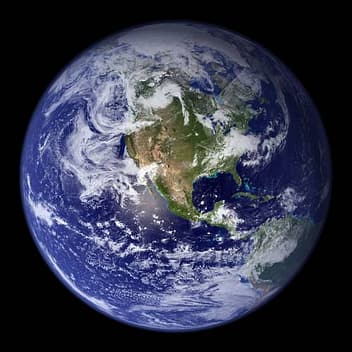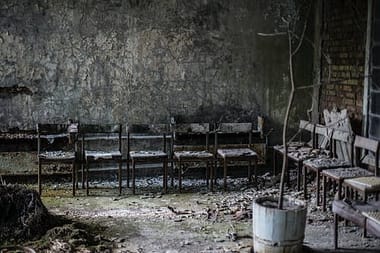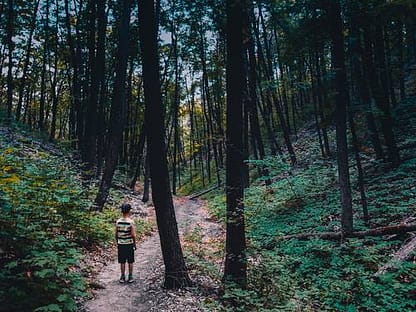A sobering yet ultimately inspirational exploration of our destruction of the natural world and how we can yet save it and ourselves. Mandatory viewing the world over.
Five Stars.

Rarely does a film carry the universal importance of David Attenborough: A Life On Our Planet. In fact, one could argue that when the documentary became available for streaming on Sunday 4th October, it was the first release since the Lord of the Rings Trilogy to be integral to our very existence.
That said, while many similarities can be drawn between the two masterpieces: a wise old wizard, a quest to defeat an imminent, all-encompassing doom and the need for a combined effort to succeed, it is their difference that should draw pause.
That is, that this particular epic doesn’t concern the fate of a fantastical, fictional land of dragons, hobbits and elves. Rather, it concerns the fate of our world. Of rainforests and oceans… of us.
“We are facing nothing less than the collapse of the living world. The very thing that gave birth to our civilisation. The thing we rely upon for every element of the lives we lead. No one wants this to happen. None of us can afford for it to happen.”
This, Sir David says, is his witness statement to the world of the destruction we continue to reap. It’s soberingly appropriate then, that the public release of such an essential statement should have been delayed by a Corona Virus Pandemic believed to have been brought on by the very same destruction it documents.
However, don’t let such urgent gloom perturb you.
Yes this documentary is one you might find yourself watching through knotted fingers but there is still a glimmer of hope. A chance that we might rectify much of the damage we have sown. Through A Life On Our Planet, Sir David tells us how.
That said, the night gets darkest just before the dawn and so, to truly comprehend the content of the great broadcaster’s gut wrenching witness statement, we must first explore its dark truth. Brace for impact, because this is going to hurt.
A Dark Truth

A Life On Our Planet opens with Sir David standing in the long abandoned city of Chernobyl.
Here he draws comparison between the catastrophic events that led to the area being uninhabitable, and the catastrophic events we have set in motion that will make much of the Earth uninhabitable. The message?
We are currently causing a global Chernobyl event and doing very little to stop it.
Hence forth, the documentary is broken into several increasingly alarming chapters as we see the great broadcaster’s life unfold, and the natural world deteriorate, before our eyes.
The first of these chapters takes us back to 1937 and Sir David’s childhood. Here we find an eleven year old Attenborough revelling in the lush, natural world around his childhood home.
The state of the world:
Year: 1937
World Population: 2.3 billion

Carbon In Atmosphere: 280 parts per million
Remaining Wilderness: 66%
And so the years pass by in a sequence more befitting of the horror channel than natural history until finally, we arrive at present day…
Year: 2020
World Population: 7.8 billion
Carbon In Atmosphere: 415 parts per million
Remaining Wilderness: 35%
It’s a format designed with one intention. To shock us into action… only this isn’t by design, these are just the facts. Hard figures that document our abuse of the wild… our self harm… and they are shocking.
Sir David proceeds to provide some context;

- Half of fertile land on earth has been cleared and transformed into farmland
- 70% of the planet’s bird population is now domestic, bred by us, for us. The vast majority therein are chickens
- Humans now account for over 1/3 of the total mass of mammals on earth. On top of that, a further 60% of that mass is comprised of the animals we raise to eat. The rest make up only 4%. That’s 4% of the mass of the entire mammalian living world, from whales to mice. 4% is wild…
- Finally, since Sir David’s broadcasting career began in the 1960s, on average, wild populations have more than halved
“There is little left for the rest of the living world…” he exclaims candidly, “Human Beings have overrun the planet…”
.. So ends Sir David’s account of human activity in his lifetime… but what if he had been born today? What changes should he expect to see during his lifetime then? What will we live to see?
A Dark Future
If we do nothing. If we remain apathetic and/or ignorant to our own future, then unsurprisingly, the outlook is bleak.

2030s – In just ten years time, science predicts that if we continue our campaign of deforestation and land clearance, the Amazon Rainforest will be cut down so far, that it will no longer have the ability to produce moisture.
Thus, it will degrade to savannah, causing catastrophic loss of species and permanently altering the global water cycle.
At the same time, due to continually warming temperatures, the Arctic will be ice free in the summer. Without these white ice caps, less of the sun’s energy will be reflected back out to space and the speed of global warming will intensify.

2040s – By 2040, frozen soils in the North will thaw, releasing giga tonnes of previously trapped methane, a greenhouse gas many times more potent than CO2, into the atmosphere. Thus the rate of climate change will accelerate further.
2050s – Through the 2050’s, as the oceans continue to heat and become more acidic, around the world coral reefs will die and fish populations will crash.

2080s – By the time 2080 comes to pass, a food production crisis will grip the world. Soils will be exhausted by overuse. Pollinating insects will disappear and the weather will become more and more unpredictable.
2100s – As we finally reach the end of this horrifying timeline, average global temperatures will have risen by at least 4 degrees centigrade. Large parts of the earth will be as Chernobyl – completely uninhabitable. Millions will be rendered homeless and a sixth mass extinction event will be well under way.
“It’s a series of one way doors, bringing irreversible change.” explains Sir David. “The security and stability of the Holocene (the period of global, climactic stability and high biodiversity) will be lost.”
This, according to Sir David Attenborough. According to the science. According to our behaviour and apathy. This is our future.
So what can we do about it? What will we do about it?
Hope – An Alternative, Brighter Future

If you’ll pardon the pun, the entire atmosphere of the piece changes from here on in. Where desolation and doom blotted the horizon, a chink of light appears.
Thus comes the dawn… but only if we make it.
“To restore stability to the planet, we must restore its biodiversity. The very thing we have removed… it’s the only way out of this crisis. We must re-wild the world… and it’s simpler than you might think.”
This is our chance. This is the answer to that question; “What can we do… what can I do?” This is how we change the course of our future. The Fellowship must assemble. The quest must begin and each of us must play our part.
According to Attenborough and the science… our quest looks a little bit like this…

- The Human Population Must Peak: at the current rate of growth, our population is due to peak at 11 billion in 2100.
However, the lower and sooner the peak, the better, and it’s possible to achieve this by raising people out of poverty and improving healthcare and education.
Particularly that of women. Conclusively, if you raise living standards, birth rates level off. Encouragingly, there are signs that this is already happening across the globe. It may sound impossible to stimulate such progress sustainably but, if we do the following, we can…

- Commit To Renewable Energy: collectively the world’s plant life captures 3 trillion kilowatt hours of solar energy every day.
That’s almost 20 times the energy the world needs to live entirely sustainably. We have the technology to do it: solar power, wind, geothermal, we just need to commit to it.
Just imagine if we did!
- Restore The Health Of The Ocean: the more diverse our ocean is, the better it absorbs carbon. It is one of our greatest allies in this fight. We can encourage this biodiversity by introducing no-fishing zones.
These restricted areas are proven to improve fish stocks to such an extent that flourishing populations spill over into unprotected waters, bolstering catch while allowing ocean biodiversity to recover. Thus we benefit as the ocean benefits. It is believed that no fish zones covering over a third of our coastal seas would be sufficient.

- Radically Reduce Farmland: if we all switch to a largely plant based diet, we can reduce the amount of land we use to farm by half.
This is essential, as we can then follow the Costa Rican example and replant native trees on the vacated land, re-wilding the world and rebuilding nature’s greatest carbon hoovers – forests.
The wilder and more diverse the forests, the more effective they will be at absorbing carbon from the atmosphere. If we achieve this globally, the new forests will absorb up to two 2/3s of the carbon we have already emitted. In tandem, our new dedication to farming (largely) plants would, in turn, enable us to substantially increase food yields, providing plenty for our stabilised population.
- Halt Deforestation Immediately: the land we have already cleared is more than enough from which to grow all the oil palm and soya we need. The reason pristine wilderness continues to be flattened is because there is a double economic incentive to do so: sell the timber and farm the land.
Therefore, we must demonstrate to those who continue to clear land that they can make a more profitable and sustainable living from the forest’s maintenance.
“The overriding principle,” says Sir David, is that “nature is our biggest ally and greatest inspiration. We just have to do what nature has always done. We can solve the problems we face by taking care of nature and it will take care of us. Stop simply growing and establish a balance with nature. We must become a part of nature once again. If we can do that, an alternative future comes into view.”
In layman’s terms, the planet is sick. We are sick. To delay treatment means certain death. Action now, however, and there is hope. We have the medicine. We have the treatments, so why delay!?
A Conclusion: Urgent Hope
As A Life On Our Planet draws to a close, we find ourselves back in the company of Sir David and returned to a Chernobyl engulfed by forest. Here he draws his conclusion:

“In the end of a life time’s exploration of the living world, I’m certain of one thing. This is not about saving our planet. It’s about saving ourselves.
The truth is, with or without us, the natural world will rebuild. In the thirty years since the evacuation of Chernobyl, the wild has reclaimed the space… powerful evidence that however grave our mistakes, nature will ultimately overcome them.
The living world will endure. We humans cannot presume the same… It’s not all doom and gloom. There’s a chance for us to make a mends… All we need is the will to do so.”
Having watched this documentary twice through now, my initial sense of anxiety has been replaced with one of certainty. Certainty that this is the most important film that has ever been made.
There is nothing more pressing than the environmental catastrophe we face because all other problems: human displacement, pandemics, food shortages, all are a by-product of our destructive relationship with the natural world. There is no doubt, then, that this documentary should be mandatory viewing the world over.
So look alive. Brush yourself down, order that veggie burger and share the message because it’s going to take all of us to do this together… in fellowship.
“.. Earth stands upon the brink of destruction; none can escape it. You will unite or you will fall.”
– Tolkien
So what’s it gonna be, Frodo?
